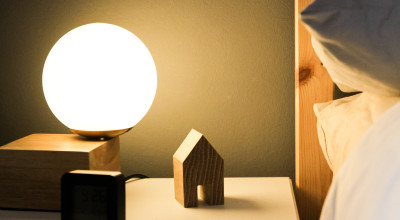Is CBD Oil Safe to Use For Someone in Recovery?
September 3rd, 2019
Cannabidiol, commonly known as CBD has become a nationwide phenomenon as CBD products, namely CBD oil, have burst into the mainstream. CBD is one of several non-intoxicating natural compounds found in the cannabis plant. CBD oil has widely been billed as a safe, non-psychoactive, natural alternative to many over-the-counter drugs and supplements with extensive medicinal and remedial effects. One of the more popularized rumored effects is the potential to treat symptoms of alcohol and drug addiction. However, the evidence of these healing benefits remains in question. Furthermore, even despite its non-psychoactive properties, the status of CBD as a part of the cannabis plant, the same plant that produces THC and Marijuana, can confuse whether CBD is a safe supplement for someone in recovery to use. Much is still unknown among the general public about CBD, its benefits, its safety, and even its legality. Let’s look at the facts of CBD and how CBD stacks up as a recovery supplement.
What is CBD Oil?
With advertisements appearing on more corners and products beginning to appear on more shelves, questions continue to arise, even the question of ‘What exactly is CBD?’
Simply put, CBD is cannabidiol, a naturally occurring compound found in the cannabis plant that has non-psychoactive elements. CBD is one of many cannabinoids found in the plant (one of 113 to be exact). A cannabinoid is a group of closely related compounds that make up the active portion of the cannabis plant. These compounds have a direct effect on the human body by affecting cells that alter the brain. Despite rapidly becoming a household name, CBD is still the little brother to a more well-known compound, THC, or the compound that causes marijuana to be psychoactive. While the ties of CBD to THC, and more broadly marijuana, can be confusing, studies of the properties of CBD have shown that it does not have an intoxicating or psychoactive effect on the human brain like marijuana and THC do.
Despite lacking the psychoactive effects, the close relation CBD has to marijuana, a controversial substance that is only legalized in 11 states and Washington D.C., causes further confusion with CBD and its growing popularity. Unlike it’s psychoactive sibling THC, CBD that is derived from the hemp strain of cannabis plants is legal under the Agriculture Improvement Act of 2018. CBD that is derived from the marijuana plant is illegal. However, while it is legalized at the federal level there are still tight regulations around CBD. Hemp-derived CBD remains legal only if it contains no more than 0.3% THC content. While it is legalized at the federal level, states still make the final decision on its legality. Many states have made laws on its legality, with some outright banning the substance or limiting its legality to only allowing CBD products without any trace of THC. In Texas, CBD products containing any trace of THC are listed as an illegal substance; non-THC CBD products remain legal in the state. Tight regulations remain on CBD products and those who manufacture such products, yet through this, the popularity of CBD is still growing at a rapid rate due to its rumored benefits.
While CBD does not have a psychoactive effect on the human body, many claim CBD to have various healing and medical benefits.
These rumored benefits include:
· Alleviating pain
· Helping with symptoms of alcohol and drug addiction
· Reduction of seizures in adults and children with epilepsy
· Limiting symptoms of anxiety and depression
· Treating acne
· Reducing inflammation
· Bettering heart health
· Alleviating symptoms of cancers or cancer treatments
· Prevention of diabetes
These are just a few of the commonly discussed effects that the use of CBD products may have. However, little clinical evidence exists that confirms the rumored benefits of CBD products. Currently, the Food and Drug Administration also warns about the unknown negative side effects that CBD may cause and advises all to use caution when using CBD products. The lack of knowledge of the proven effects of CBD oil still has not dispelled the public from giving CBD a try, including even those who may be in recovery from drug and alcohol addiction.
Is CBD Oil Safe To Use For Someone In Recovery?
One of the more popular discussions surrounding the use of CBD oil is the direct effect it can have on symptoms of drug and alcohol addiction. However, there is no hiding fact that CBD is a derivative of the same plant as marijuana, which is considered a schedule 1 drug by the United States Government. While CBD does not have the same psychoactive effects and side-effects as marijuana and THC-related products, many of the side-effects of CBD oil are unknown. Addiction in the form of dependency and withdrawals related to CBD use remains a possibility, but no firm studies have been done to validate this. While proof does exist of the effectiveness of CBD in reducing symptoms of epilepsy, few studies have proven its effectiveness when it comes to assisting with recovery from alcohol and drug addiction. Positive signs do exist as studies have found signs of effectiveness in breaking a smoking habit and decreasing one’s cravings for nicotine. Despite small signs of benefits on curbing craving tendencies, much is still unknown when it comes to dosages or the potential side-effects from CBD use. Doctors have shied away from prescribing CBD due to the lack of recommended dosages or general guidelines for administration.
Much is still being learned about CBD, its benefits and its detractors, with more studies being conducted to learn how exactly CBD can have a positive or even negative effect on the human body, including on recovery from addiction. The concrete evidence is still being explored as to whether CBD is safe for someone in recovery to use. It is advised you consult with a medical professional about whether CBD products would be beneficial to you before use.
If you or a loved one are ready to seek help for addiction, contact our admissions team today. We're here 24/7 to answer any questions you may have and to make the admissions process as simple and judgement free as possible. Find your path to recovery at Windmill Wellness Ranch.


